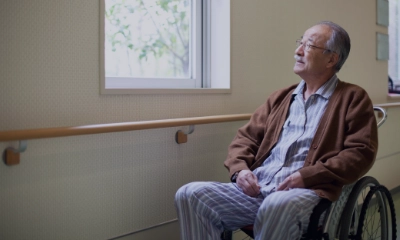Orange County Estate Planning Lawyer
Business Law

Business Law
A good estate plan covers what to do should you become ill or otherwise incapacitated, and it is essential to the well-being of those who depend on you. Contact the Orange County estate planning attorneys at Beckerman Anderson to get started today.
A lot of people think estate planning is something that only the elderly or the well-to-do need to worry about, but that isn’t the case. People of all ages and from any socioeconomic group will benefit from having a long-term plan. Every person with an estate needs an estate plan, preferably one that includes a living trust.
It is important to keep in mind that an estate plan isn’t simply about who inherits your house when you pass. For example, if you were hit by a drunk driver and wound up in the hospital, unconscious, who would have the legal authority to handle your finances? Who will make sure your bills are paid? Take care of your kids? Run your company or Make important decisions regarding your healthcare? Where would the money for those things come from? It could be your spouse, but what if they were injured in the accident as well?
If you are like most people and have no definitive answer to all of these questions, then you need an estate plan. The estate planning attorneys from the law firm of Beckerman Anderson are here to help.
In the event that you suddenly die without having penned a will or established a trust, then an Orange County probate court will distribute your assets on your behalf in accordance with the local law and without a moment’s consideration for what your wishes may have been. Even worse than that, probate could hold everything up for months or even years, forcing your loved ones to wait even longer to collect their inheritances.
A Team Based on Trust and Communication
Estate Planning Deters Family Rivalries

Estate Planning Deters Family Rivalries
If you died tomorrow, do you know what would happen to the home you are renting out to your granddaughter and her family? Would your two grown children quarrel over it? Does your granddaughter have any rights regarding her tenancy?
If you are not 100% certain about how that is going to play out and what could happen to your granddaughter and her family, then you need an Orange County estate plan that includes a living trust. If you die with no estate plan in place, your family members will probably have to go to probate court to fight over their inheritance and their rights.
Do you have a son who made a questionable decision in who he married and might eventually file for divorce? In 25 years, when you are no longer here, will his ex-wife have any kind of legitimate claim on the money you want to leave him?
If you are unclear on what would happen in that scenario, then you need to speak with a reputable Orange County estate planning attorney from the law firm of Beckerman Anderson as soon as possible.
If you die without an estate plan and a living trust, your family members will end up in Orange County probate court, fighting over their entitlements. Not just the rights to the family home but to your investments, your bank accounts, and possibly even the legal custody of your young children or other dependents.
If you are alive but debilitated, they could end up fighting over which one of them will have control over all of those aspects of your life and whose responsibility it is to make your healthcare and the many serious and emotional end-of-life choices.
In addition to the huge expense that is incurred when families go to court for any of the above-listed reasons, the legal process in overpopulated Orange County often takes months or sometimes even years of their time. In tense, emotionally-charged situations such as this, it is also not uncommon for familial relationships to be completely destroyed. An Orange County estate planning attorney can help you circumvent these and other undesirable scenarios.
Once you become very ill, incapacitated, or you die, it is too late to create an estate plan, even for your children. We often receive phone calls from a deceased’s child asking what they should do if their mom and dad lived in Orange County and made an estate plan but failed to sign it or left no estate plan at all. Unfortunately, we have no choice but to tell them they are probably going to have to go to court.
Only you can make your estate plan and create a living trust, and you can only do this if you are alive and lucid. If you do not have the meticulously worded estate planning documents, fully signed, and witnessed, that are part of a comprehensive estate plan, then your final wishes, which you assumed were understood by everyone, will have absolutely no legal traction.
You need to create an Orange County estate plan.
The ideal Orange County estate attorney will have prior experience in the state of California. They will take the time to sit and talk to you and really understand the dynamics of your family and your individual concerns. They will work hard to understand the unique issues that apply to your situation and what your loved ones will be expecting when the inevitable happens. In California, comprehensive estate planning also involves learning the full scope of your assets so that appropriate tax planning can be done for you and your heirs.
Estate plans are customized. They take into consideration the current structure of your family structure, as well as any applicable recent court decisions and up-to-date tax laws. A good Orange County estate attorney will work with you over the years to ensure that your plan and living trust are kept relevant and up-to-date, a feat that no California Living Trust Template or automated estate planning tool can accomplish.
Trying to use these tools to do your estate planning yourself is a recipe for disaster that your family will eventually have to deal with. An Orange County estate planning lawyer from the law firm of Beckerman Anderson can help you plan for one of the hardest and most emotional times of your life. We offer sound legal advice and answer any and all questions about what to do when that time comes.
Schedule an appointment to speak with one of our Orange County attorneys for all of your estate planning and trust administration needs. Our offices are located in Costa Mesa. You can give us a call at (949) 409-4299 or reach out through the contact form on our website.
No, a last will and testament is not the same as an Orange County estate plan. In California, a last will and testament isn’t even a legally binding document but rather a letter written to a probate judge that makes your final wishes known. The judge, whom you will never ever meet, will decide what actually happens to your assets. A last will and testament also does not cover what should be done and by whom if you are incapacitated.
If you only have a will, especially if it is one that was downloaded from a website that had a California Last Will and Testament template, your heirs are going to wind up spending a great deal of money on attorneys, court fees, and no less than six months in an Orange County probate court. Also, no tax planning will have been done, which will, in itself, cause a problem for your heirs.
When someone dies, California law states that their property must be collected and accounted for. After their expenses, estate taxes, and debts are paid off, then any remaining assets will be allocated to whoever is entitled to them. The distribution of these assets is, preferably, decided by the deceased’s will. In the event that there isn’t a valid will or the will turns out to be partially invalid, then assets will be dispersed in accordance with California’s intestate laws.
The executor of the estate, also known as the administrator, is responsible for collecting and safeguarding the deceased’s assets, paying any death taxes (also known as estate taxes), expenses, and debts still remaining and properly executing the disbursement of any remaining assets.
A comprehensive estate plan is a set of documents that typically includes a living trust, durable powers of attorney for healthcare and property, a pour-over will, and an advance healthcare directive/living will. Aplan will also include a Health Insurance Portability and Accountability Act authorization, beneficiary designations for life insurance, property deeds, IRAs, annuities, 401(k)s, guardian nominations for your incapacitated dependents and minor children, and much more.
Each individual document has to be signed and properly archived so they can be easily located when you pass away or are incapacitated. Some estate planning documents are going to be common forms for estate planning in California, but many will be specifically drafted with your circumstances in mind. Once you sign all of the estate planning documents, the living trust has to be funded, and all of your financial institutions must be informed as they will have paperwork to handle on their end.
For almost everyone, a living trust is at the core of their California estate plan. Depending on their circumstances, a lawyer will draw up individual living trusts or joint trusts for husbands and wives. This kind of trust is referred to as “living” due to the fact that it is effective and protects you while you are still alive. It remains in effect after your death and, in some instances, after the death of your heirs.
A living trust is essentially a box that holds certain types of assets over which you and your beneficiaries will retain control. A living trust foreshadows your death and incapacity and puts your long-term desires into place. Living trusts have proven to be the safest way to plan and safeguard your estate for the causes and people that are important to you.
As long as you are alive, you will have total control over this box, the revocable living trust. You can even make changes to it as you see fit. If however, you die or become incapacitated, your living trust can easily be passed to whomever you have chosen, often without the involvement of a judge or the courts.
A revocable living trust is funded when it is established and then again if assets change. It is extremely important to ensure that your living trust is fully funded. An unfunded or partly funded trust will have to go through probate, which is one of the things you are trying to avoid.
When you initially fund the trust, you will change the titles of ownership for most of your assets. The name on the title changes from your name to that of your living trust.
It is crucial to speak with an Orange County estate planning lawyer to figure out which assets should be omitted from the trust and which need to be retitled. A list of assets that are commonly considered for a revocable living trust in California include:
- Investment accounts
- Cash accounts
- Stock options
- Stocks and bonds that are not held in investment accounts
- Personal items
- Qualified Tuition Plans (529 Plans)
- Retirement plan assets
- Mortgages, notes, additional receivables
- Life insurance annuities and policies
- Sole proprietorship interests
- Professional, business, or corporate interests
- Partnership interests
- Real property
- Mineral, gas, and oil interests
An important part of funding a revocable living trust is updating all relevant beneficiary designations to align with its provisions.
Durable Powers of Attorney: California Property

Durable Powers of Attorney: California Property
Despite its name, powers of attorney do not have anything to do with actual attorneys.
Instead, powers of attorney are important documents that essentially say, “If I become ill, this person has a durable (continuing) power to manage things that are not included in the living trust.” In other words, the person you have chosen will be able to pick up registered mail from the post office, pay your bills, and select your nursing home.
You can choose another person to make decisions on your behalf regarding your financial holdings and your business. You may also select a third person to manage your digital assets, 401(k), IRA, 403(b), Twitter feed, Facebook page, Instagram, Dropbox, blog, and any other social media accounts you may have. The people you select are referred to as attorneys-in-fact.
Durable Powers of Attorney: California Healthcare

Durable Powers of Attorney: California Healthcare
Another important document included in your estate plan designates your durable powers of attorney for any healthcare decisions. This will come into play when you are no longer able to make these kinds of decisions for yourself. Is another operation worth the risk? If the cancer returns, should you resume chemotherapy? These documents are sometimes called by other names in other states, such as a physician’s directive or an advance healthcare directive. In California, the person you select to hold your power of attorney might be called a healthcare agent.
We understand that these topics are both frightening and intimidating for most people, but if you don’t decide who you trust to make these tough choices, then someone else will. These are decisions that will eventually have to be made. Wouldn’t you prefer to be the one making them instead of a judge or a doctor?
Not to be confused with a living trust, a living will makes your wishes known in the event of a truly dire medical situation. Our attorneys will go over the specific situations with you in detail, including how each situation generally plays out in real life.
A California living will acts as a kind of permission slip that allows your family members to let you go when the time comes. It doesn’t just tell them under which circumstances you want them to “pull the plug.” It also allows you to express, for instance, if you want feeding and breathing tubes and other important medical decisions that are important to you.
If you do not have a living will, you are, unfortunately, forcing your family members to make decisions that are even more difficult later on, making them vulnerable to anxiety and guilt and potentially even your own suffering.
A lot of people are deeply concerned about what will happen to their young children when they pass away. It is part of your responsibility as a parent to officially designate a guardian and a backup guardian and to have the appropriate documents drawn up and signed in the event that you die or are otherwise incapacitated.
It is important to keep in mind that there are two different types of guardianship. The first is physical custody, which is guardianship of the actual person. The second is guardianship of the estate, which is guardianship of any money. Courts commonly divide these two duties, and you might want to do the same when making your estate plan.
If your estate plan already names a designated guardian, it is very plausible, although not 100% guaranteed, that the court will abide by your instructions. Our estate planning lawyers can make sure this paperwork is handled properly so you do not need to worry about who will take guardianship of your children.
Another document included in a complete estate plan is a pour-over will. A pour-over will leaves anything that is not included in your living trust to your trust upon your death. For instance, if a lender instructed you to remove your home from your trust before you refinanced your mortgage and you never transferred it back into your trust by deed, then the pour-over will can ensure that your home is dispersed according to the terms of your trust, instead of being handled as though you died intestate, meaning you died without a will.
Another important part of the estate planning process is a HIPAA document. A Health Insurance Portability and Accountability Act authorization lets appointees access your healthcare information. These documents are extremely important.
For example, you probably don’t want your home healthcare worker to make medical decisions on your behalf, but you may want them to be able to talk to a doctor about your current care or to pick up a lab report for you. If you have not authorized anyone to do so, you could be causing an avoidable issue in your own daily care and well-being. Our estate planning lawyers can ensure that your wishes are followed.
Based on your specific circumstances, additional documents can be created by your Orange County estate planning lawyer. These documents can include asset protection for those expecting lawsuits, bankruptcy, or divorce that involves themselves or their beneficiaries. Special trusts will be needed in order to safeguard disabled and special-needs beneficiaries.
You need to bear in mind that a California estate plan is not a single document but rather a compilation of directives, nominations, and appointments that dictate who is responsible for what and how your assets are going to be handled from one point to the next. A California living will is not a static or simple group of documents. It is a collection that has to be carefully drafted, maintained, archived, and revised as time goes on.
In California, a trustee is someone who has been selected to preside over a trust. A trustee is legally obligated to protect the best interests of the beneficiaries by looking after the trust’s assets.
Some of the more common trustee duties in the state of California are:
- The management of rental properties
- The investment of funds
- Accounting to beneficiaries
- Shutting down accounts
- Paying income to beneficiaries
The ideal trustee will exhibit good business sense, integrity, honesty, and a strong sense of ethics. They should be able and willing to show a high level of care over the property in the trust and be willing to abstain from actions or investments that might result in financial losses.
A trustee has to have the legal capacity to enter into a contract, so this will preclude the appointment of anyone younger than 18 or an adult with diminished capacity. Another smart idea is to appoint a trustee who lives locally, so they are better able to handle the daily responsibility of administering the trust.
Skill with investments is preferred and often necessary. According to the “Prudent Person” law, a trustee is liable to the beneficiary for any financial losses unless they exercise the same duty of care and someone of ordinary prudence would show in dealings involving their personal property.
Since the trustee must periodically review and examine the trust, legal and administrative knowledge and skills are also essential. Accountings have to be made to the client and, ultimately, to the other beneficiaries as well. All involved parties need to be accurately advised on matters pertaining to death taxes, property taxes, and other legal issues. Provisions included in the trust will periodically need to be explained.
California Trust Language: May vs. Shall

California Trust Language: May vs. Shall
Where a trust is concerned, the words “may” and “shall” are interpreted differently and can make a world of difference in the way things are handled. These words indicate whether a trustee is required to take a specific action or has the discretion to take or not take an action.
Unless by the context in which it is used or otherwise expressly provided in the trust document, the word “shall” imposes a command, duty, requirement, or direction. The word “may” permits or allows, but it does not require.
In the trustee context, the word shall is used to impose a fiduciary duty. The word “may” is used to allow the trustee to act according to their own discretion unless otherwise stated. When the phrase “may not” is used in reference to a trustee, it explicitly means that the trustee is not allowed to take a particular stated action.
Orange County Estate Planning for Digital Assets

Orange County Estate Planning for Digital Assets
Digital assets are personal property, such as videos, pictures, loyalty programs, video gaming accounts, social media accounts (Instagram, TikTok, Facebook), and financial assets, such as virtual currency, credit card accounts, retirement accounts, and loans. Although some digital assets might be valuable only to your family because they are sentimental, many of them could potentially have a notable monetary value.
Things tend to get complicated, however, when the time comes to hand digital assets on to the next generation. It helps to bear in mind the intricate tangle of federal statutes, state statutes, and common law that are involved in this process since they could come into play if you become incapacitated while you are still alive.
A few of the more significant laws that influence access to digital assets include:
- The Revised Uniform Fiduciary Access to Digital Assets Act: Almost all states, including California, have enacted this legislation which regulates the disclosure or non-disclosure of a person’s digital assets when they die.
- The Stored Communications Act: This legislation is designed to protect any email access without the consent of the account owner. If the estate plan does not give a clear directive, then the personal representative of the deceased could have a significant amount of trouble being granted access by the email provider.
Digital assets are somewhat new and present complications that could require you to revisit your estate plan, particularly if you have not done so for quite a while. If you need assistance with your Orange County estate planning or have questions or concerns regarding your digital or other assets, please give the estate planning attorneys from the law firm of Beckerman Anderson a call at (949) 409-4299 to schedule a meeting with one of our attorneys.
Estate Planning When Death Is Imminent

Estate Planning When Death Is Imminent
Although death sometimes comes quickly and without any warning, the majority of people are very aware when the end of their life is approaching. Although things are always easier when you have everything in order ahead of time, it is never too late to manage your affairs, and a qualified Orange County estate planner can help you do just that.
Along with mitigating estate and property taxes, bypassing undue expenses, and making sure your needs are taken care of, getting your financial affairs in order will provide a much-needed sense of reassurance to you as well as to your family at an otherwise difficult time.
When death seems imminent, estate planning is probably the last thing you are thinking about. Luckily, there are strategies in place that can help lessen your end-of-life financial duties. When time is a pressing factor, however, you or those close to you may find some solace and comfort in receiving reputable legal guidance.
To start, your attorney will need to review any existing documents that pertain to the planning of your estate. In many cases, you are looking to ensure that your wishes, as outlined in those documents, have not changed.
If, however, your familial relationships have changed or if federal and state tax, probate, property, and trust laws have changed, revisions are most likely necessary. Your estate planning attorney should also check your estate plan’s sufficiency. While it might have served your purposes when it was drawn up, it might not be suitable for handling your assets as they currently are, and you will be facing the issue of probate court once again.
Your Orange County estate planning lawyer will need to pay close attention to the following:
It is extremely important to locate the most current version of these records and painstakingly review their contents as well as any amendments or codicils that may exist. While you are reviewing these documents, you might also want to compose gift letters. Gift letters are a good way of making sure that certain items, typically valuable in either money or sentiment, end up with the right person.
Along with listing any properties you currently own and the manner in which they are held, a complete listing should also include a full explanation of any monies owed, any monies coming due, and complete contact details for all creditors and debtors.
When death is imminent, your estate planning attorney can minimize the associated tax burden in a few different ways. For example, if you are married, transferring assets from one spouse to the other is usually an option. If you and your significant other are not married, this could be a good time to consider taking your vows. Your estate planning attorney will be able to advise you on the most reasonable means of continuing your tax advantages during this time.
You need to authorize a trusted family member or close friend to make difficult but important decisions for you in the event that you become completely unable to make them yourself.
The person you pick will be in charge of ensuring that any actions pertaining to your healthcare, your property, anatomical donations, HIPAA waivers, and advance care directives are all carried out in accordance with your wishes.
Anyone who is at least 18 years old and is in full possession of all their mental faculties may choose to donate certain organs or their whole body to medical science. In California, this involved signing a document of gift. If you are unable to sign for yourself or are younger than 18, a parent, guardian, or official surrogate might be able to sign on your behalf.
When your condition is terminal, this important document will help to ensure that the medical professionals overseeing your care will carry out your wishes when you can no longer make them known. Have your estate planning attorney assist you with this, and be sure to give copies to your family members, your doctor, and your healthcare facility.
If you become gravely ill and feel that your time will soon be up, ensuring that your funeral arrangements are made ahead of that time will ease some of your anxiety and give you a feeling of control. If you are unable to meet with a funeral director in person, you may want to think about giving a trusted family member or friend permission to make funeral arrangements on your behalf.
An Orange County Estate Planning Attorney Can Help You Understand California Law
Estate planning laws are both precise and unique, and they vary from state to state. A professional who is well-versed in estate planning can make sure that:
- Your estate plan will make it possible for your family to avoid probate
- Reduce the length of time it takes for your assets to be allocated to your family
- Keep dissatisfied friends and family from contesting your will
- Maintain some sense of familial camaraderie during a time of sorrow
Only by carefully examining every possible roadblock and trap by having an experienced law firm explain the estate planning process can you be sure to avoid complications that can be as maddening as they are time-consuming and expensive.
Speak with an Orange County Estate Planning Lawyer Today
Sadly, a lot of people mistakenly believe that a one-size-fits-all estate plan that they found online will meet their needs. The reality is that everybody has different economic situations, and overly-simplistic solutions are not going to meet everyone’s needs. Also, without the advice and direction of a skilled Orange County estate planning lawyer, you could very easily make a mistake that will slow the allocation of your assets to your beneficiaries or even invalidate your document altogether. Contact an Orange County estate planning lawyer from Beckerman Anderson at (949) 409-4299 to get started.

